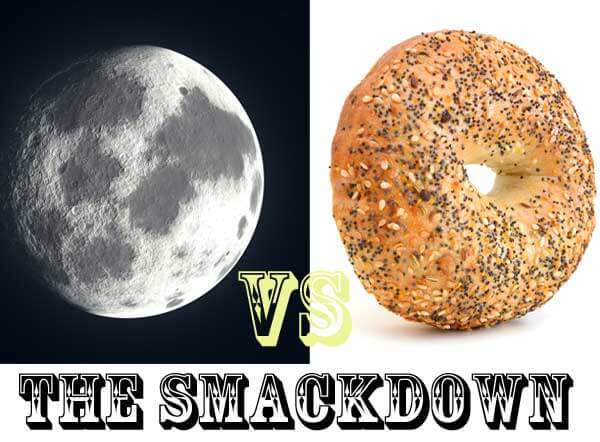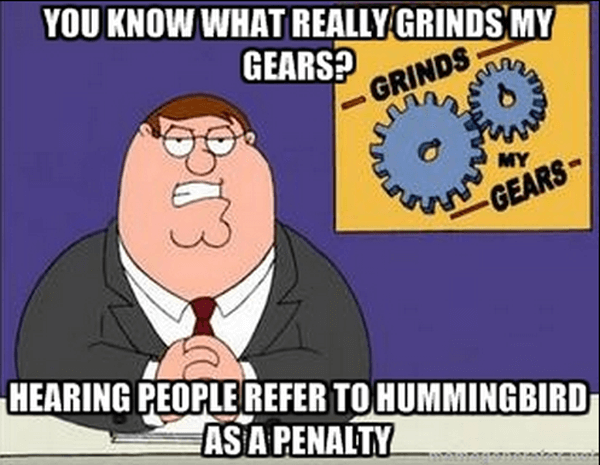SEO is almost 20 years old. Can you believe it? There’s some argument about when the practice started, as well as when the term itself was coined, including a failed patent attempt from 2007; but most industry old-timers put the birth of SEO at around 1995.
So, after almost 20 years, what do we have to show for it? SEO has
matured in some aspects; it’s now a line item on the budget of most
Fortune 500 companies. I’ve been in SEO since 2000, and I am grateful
that now when I tell people what I do, I can just use the terms “SEO” or
“internet marketer,” and don’t have to rely on my old standby of “I work with computers. I could explain more, but I’d need charts and an easel.”
It always got a laugh but made me feel distinctly out of place. Now
at any given gathering, I’m likely to find someone who says “SEO? Oh,
we’re seeking a new firm. Do you have a card?”
In other ways, SEO has earned a bad name, with pretty much everyone
having been burned by some unscrupulous “SEO” that has promised the moon
but delivered an everything bagel (even if you do like these, which I
don’t, it’s a far cry from the moon).

If you work with people that have earned penalties, it can be
disheartening to see the heavy hand of Google at work. After all, most
of these companies simply followed the crowd in the tactics they
implemented several years ago, and now they’re being burned at the stake
for it.
Many small businesses have simply closed up shop, unable to compete.
And larger businesses often find they’re behind the 8-ball with critical
integrations like mobile readiness. Without a well-known name or a
large, well-respected agency at your back, it can be hard to achieve
legitimacy in this industry.
But I’m here to tell you a secret. It’s been 20 years, and the
old-timers are getting tired. Lots of them are leaving SEO, including
the incomparable Jill Whalen and Jonathan Colman.
Some are retiring, having made their fortunes. Others are renaming
themselves, trying to leave the name, the limiting factors and the
stigma of “SEO” behind. For our purposes, we’ll still call ourselves SEOs.
In my SEO-happy city of Raleigh, NC, you can see this phenomenon
playing out, too. Several meetup groups or Google Plus communities are
looking for new leaders. The old leaders have been doing it for several
years, and they’re tired, ready to try something new, or just so
successful that they no longer have the time to devote.
It’s time for the next generation of SEOs to step up and take the helm.
You may be discouraged at first, as you try to become a voice in an
increasingly noisy and saturated market, but I’m here to offer you some
advice on how to make yourself stand out in the crowd by helping you
understand what SEO is really all about.
SEO Is Marketing
The funny thing about SEO is that the more things change, the more
they stay the same. The tactics shift, the penalties increase, and the
blackhats get smarter; but, SEO is still fundamentally just marketing.

The Dot-Com Bubble Bursts, 2000
Marketing is about being amazing. At the end of the day, make sure
you’re building, making, creating and selling something great. Make
people happy or help them solve their problems. Make their lives just a
little bit easier.
The internet is not a get-rich-quick scheme. That ship sailed back in
2000 when the dot-com bubble burst. You need to have a legitimate
product or service that is as well-supported offline as it is online.
I’m not saying you have to open a brick and mortar, but your company
must have real people behind it to succeed. The days of selling
vaporware are over.
SEO Is Relevance
Far beyond getting a certain number or ratio of links or using
keywords a certain number of times, your site must be relevant to obtain
good positioning on search engines. And to get into the top 10, it’s
got to be far more than just “relevant.” There’s a lot of competition
out there for virtually every search term, so you need to be outstanding
in some way — whether it’s customer loyalty and love, superior product
quality or something truly innovative.
Make sure your site is not just readable on mobile, but mobile
friendly. Go the extra mile to provide a pleasant experience with your
email campaigns, your coupon experiences, your customer service. There
is nothing better for SEO than a bunch of happy customers.
SEO Is Strategic
You must think about the future. Wearables like Google Glass and the iWatch are only the beginning. We have already pushed well beyond search engines into Experience Optimization on review sites, Facebook, Pinterest and more. Soon, we will push beyond the limiting edges of websites, too.
SEO is not a series of tactics, or a system you can game. Studying
Google’s algorithms, patents and updates is fun if you’re into data. But
if you’re doing it just to reverse-engineer the algorithm, you’re going
to fail.
Consider critically how your product or service fits in. How will you
leverage new technology in your business or the businesses of your
clients? Building these skills and knowledge now will really put you at
an advantage over us old-timers, because it’s hard to teach how to
“think fourth dimensionally.”

Quote from Back to the Future III
SEO Is Relational
Feel free to scoff at the notion of schema; laugh at the worshippers
of FreeBase, and turn your nose up at Wikipedia. Just know that while
you’re doing that, they’re laying out the future of how we’ll find
things. I hesitate to even call it search, since it won’t be about
strings of data, but about understanding things. If you’ve never read
the post by Google, Introducing the Knowledge Graph: things, not strings, you need to.
The fundamental problem with the way we’ve always searched is that we
use language. And language, by definition, is imperfect and ambiguous.
As we leave the four corners of websites behind and strive to understand
fundamental connections between things, or “entities,” the rush to
schema will make more sense.
Whether we have to keep tagging everything ourselves or search
engines just get more advanced at discovering the relationships
themselves, entities are the future of how we’ll search. It’s nothing
new really, but if I hear one more person refer to Hummingbird as an
algorithm update or a penalty…

Hummingbird is a fundamental change in the way the Google database is
structured — in the way that the algorithm processes information. It’s
the largest change to Google since the introduction of PageRank. To
optimize in the age of Hummingbird, it is critical that you understand
this.
This by the way, is why guest posting is not dead, directory listings
are not passé, and reciprocal links aren’t necessarily evil. Too much
of any of these things is bad, and doing them for the purpose of gaining
links is bad. But in order for people and search engines to understand
where you fit into the universe, they need some of these relational
cues.
Do any one of those too much and you’ll encounter the Google
algorithm’s wrath. Think about what will help your business, and do that
instead. If you have the opportunity to post on an industry publication
that is well respected, don’t think twice — do it! If you have a
business where location is important, get it listed in the online yellow
pages!
SEO Is Frustrating
You must bend to the search engines’ every whim. If they tell you to
nofollow, do it. If they give you a new schema tag to use, use it. If
they tell you to stand on your head, ask them for how long. Like it or
not, the search engines rule SEO.
We are free to ignore their recommendations, to block their robots or
ignore their penalties. But it’s like the kid at the playground that
you don’t play nicely with. He will just take his ball and go home.
Google doesn’t need you. So feel free to question, criticize, or even get irritated by what Google requires. But do it anyway.
SEO Is Collaborative
One of the biggest mistakes new SEOs make is taking things at face value. Dr. Pete wrote this amazing open letter to SEOs where
he hits this right on the head. Question. Test. Test Again. Build.
Destroy. Just because someone you respect says your Title tag should be
67 characters for maximum click-through potential doesn’t mean it’s
going to be that way with your site or your clients’.
But be careful of falling into the trap of testing all the time and
never creating. You have a responsibility to your clients and to
yourself to deliver results, not just results of tests.
So instead of testing all the time, collaborate with your fellow
SEOs. One of the best things about SEOs is that we’re all on social
media. So go ahead, hit someone up on Twitter, send a random question
out onto Facebook. You’ll find SEOs at any hour of the day that are
happy to talk shop with you. That’s pretty amazing, but it happens
because there is plenty of work to go around. We don’t have to compete.
SEO Is Holistic
SEO is the perfect combination of creativity and writing, technology
and data mining, analysis and implementation. It’s the alpha and the
omega, the yin and the yang.
A great SEO won’t be happy just writing tags; she’ll want data on
user behavior, conversion quality and product margins. A strong SEO
won’t shy away from learning black hat tactics; he’ll delve into them to
understand them and how they work. An ethical SEO will refrain from
using them other than to help identify and obliterate them.
But just as we need each other, we also need the darker side of SEO.
It pushes us (and the search engines) to be better, to do better. We’re
all part of a beautiful marketing whole and we balance each other out.
Welcome to our world; to our enigma. We’re happy you’re here and we
hope you love it as much as we do. We can’t wait to see where you take
SEO next.
Source Of: An Open Letter To The New SEO Generation
Source Of: An Open Letter To The New SEO Generation



0 comments:
Post a Comment